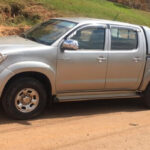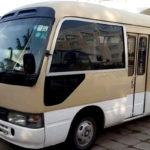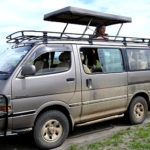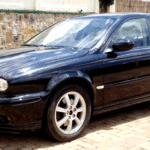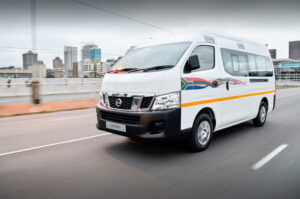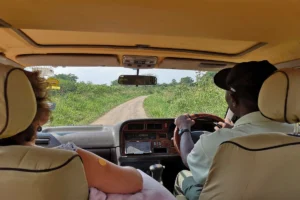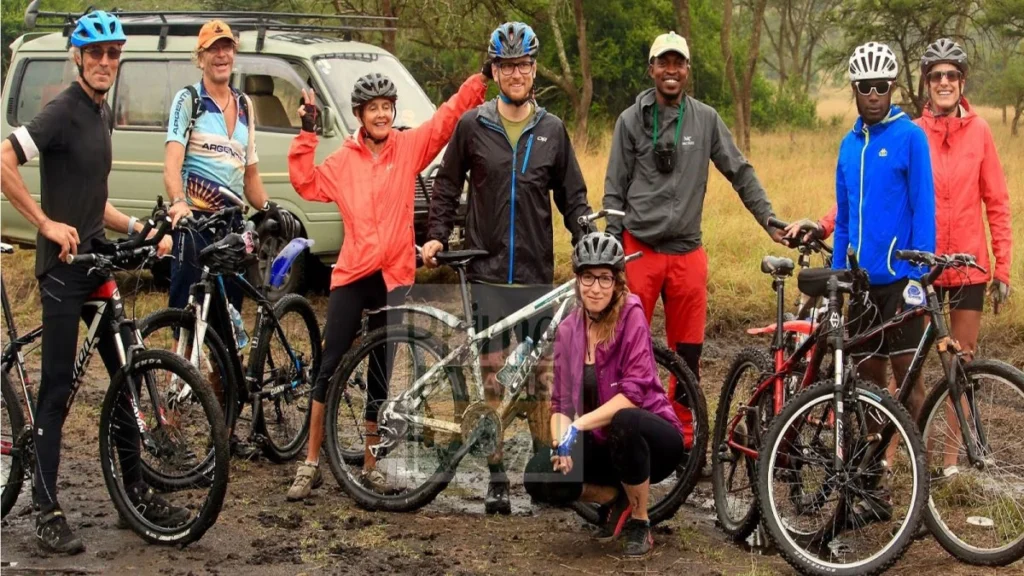
Rwanda’s dramatic topography of rolling hills, scenic valleys, and winding mountain roads creates a cyclist’s paradise where every turn reveals breathtaking vistas. Cycling safaris offer an immersive, eco-friendly way to experience Rwanda’s stunning landscapes, vibrant villages, and authentic culture at a human-powered pace. Whether you’re tackling the legendary Congo-Nile Trail, exploring Akagera National Park on two wheels, or cycling through rural communities, Rwanda’s cycling adventures combine physical challenge with unforgettable cultural and natural encounters.
The Congo-Nile Trail: Africa’s Ultimate Cycling Route
Stretching 227 kilometers along Lake Kivu’s eastern shoreline from Rubavu (Gisenyi) in the north to Rusizi (Cyangugu) in the south, the Congo-Nile Trail ranks among Africa’s most spectacular cycling routes. This multi-day adventure traverses undulating terrain with elevation gains and losses exceeding 7,000 meters, passing through eucalyptus forests, coffee plantations, traditional villages, and lakeside beaches.
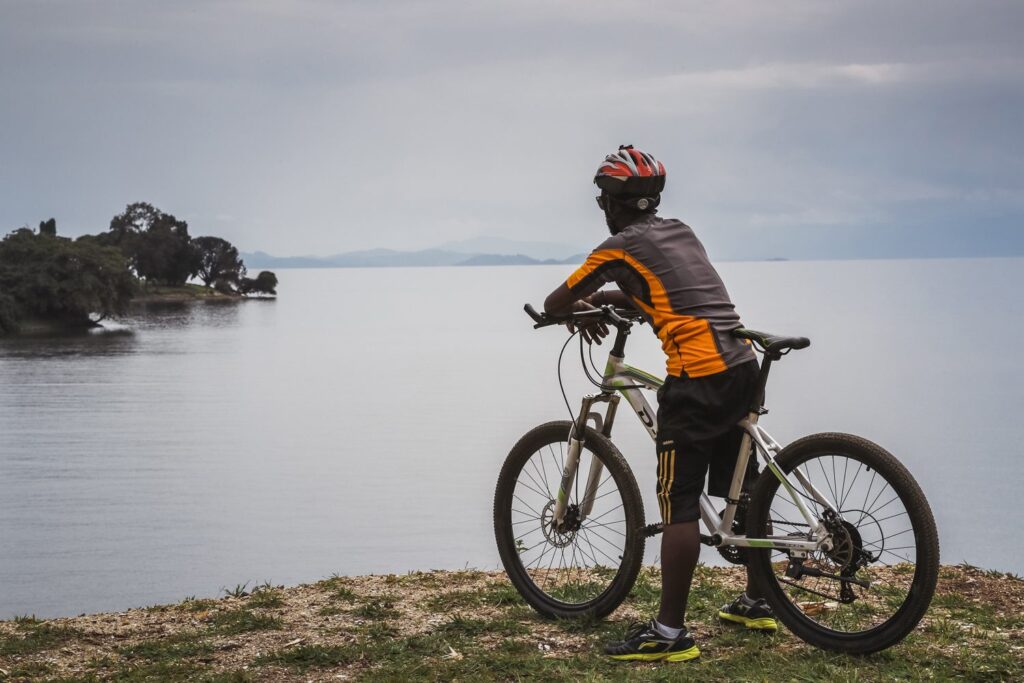
The trail can be completed in 3-5 days depending on fitness levels and desired pace, with accommodation options ranging from budget guesthouses to comfortable lakeside hotels in towns like Kibuye and Cyangugu. Each day’s ride covers 40-60 kilometers, allowing time to interact with local communities, swim in Lake Kivu’s refreshing bilharzia-free waters, and savor stunning sunsets over the Democratic Republic of Congo’s mountains across the lake.
Highlights include dramatic lake viewpoints from mountainous sections, visits to coffee cooperatives where you can learn bean-to-cup processes, encounters with friendly locals in remote villages, and the satisfaction of conquering Rwanda’s challenging terrain under your own power. The trail is clearly marked with green and yellow signs, though hiring local guides enhances experiences through cultural insights and navigation assistance.
Cycling Safaris in Akagera National Park
For wildlife enthusiasts, Akagera National Park permits cycling safaris along designated routes, creating unique opportunities to encounter African wildlife from a bicycle seat. Unlike motorized game drives, cycling allows silent, non-intrusive approaches to wildlife while adding adventure and physical engagement to traditional safaris.
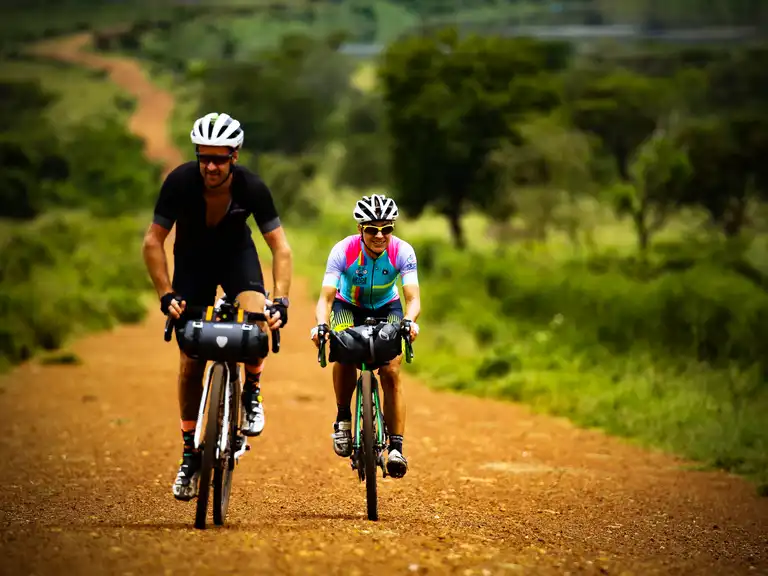
Cycling routes traverse the park’s southern sections where zebras, impalas, warthogs, giraffes, and various antelope species graze within meters of the trail. The absence of engine noise means better birding opportunities and more authentic bush experiences. While cycling near large predators and elephants isn’t permitted for safety reasons, designated cycling zones still deliver exceptional wildlife encounters in stunning savanna landscapes.
Most cycling safaris in Akagera are guided experiences lasting 2-4 hours, with rangers ensuring safety while sharing knowledge about ecosystems and wildlife. Mountain bikes suitable for rough terrain are typically provided, and fitness requirements are moderate as routes avoid the park’s steepest sections.
Village-to-Village Cultural Cycling Tours
Beyond epic trails and wildlife encounters, Rwanda’s countryside offers rewarding village-to-village cycling experiences. These cultural tours pedal through rural landscapes connecting small communities, providing intimate glimpses into daily Rwandan life impossible from vehicle windows. Stop at local markets bursting with colorful produce, visit artisan cooperatives producing traditional crafts, share tea with families in their homes, and learn about agricultural practices from farmers tending terraced hillsides.
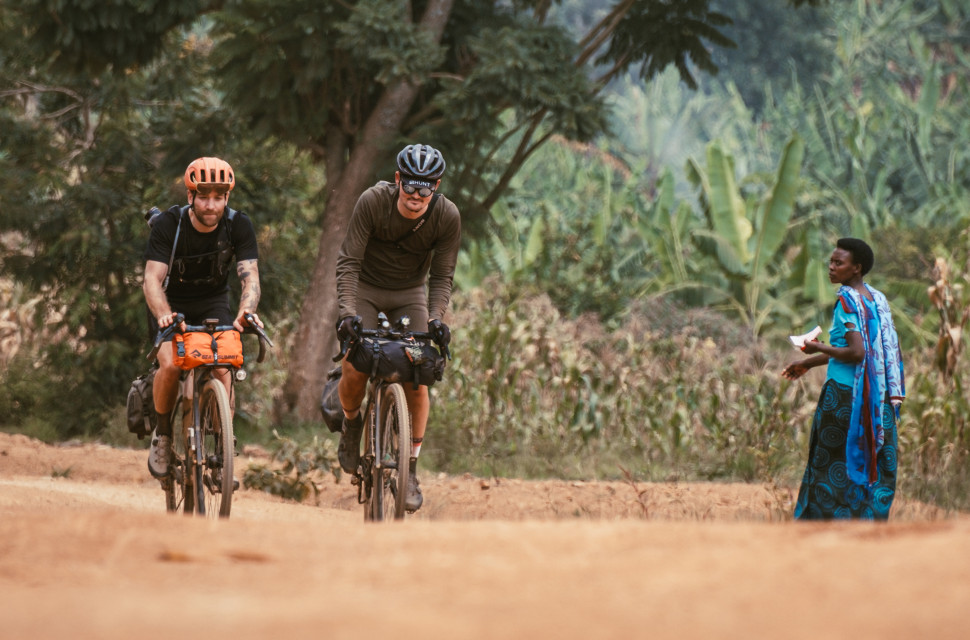
Several tour operators offer guided cultural cycling experiences around Musanze (near Volcanoes National Park), through the hills surrounding Kigali, and in rural areas near Nyanza. These typically span half-day to full-day durations, covering 20-40 kilometers on quiet dirt roads and village paths with numerous stops for cultural interactions.
Best Cycling Seasons and Fitness Requirements
Rwanda’s dry seasons from June to September and December to February offer optimal cycling conditions with minimal rain, clearer skies, and firm trail surfaces. However, the wet seasons transform landscapes into lush green tapestries and reduce dust on trails, appealing to cyclists who don’t mind occasional showers.
Fitness requirements vary significantly by route. The Congo-Nile Trail demands good cardiovascular fitness and cycling experience due to its length and constant elevation changes. Akagera cycling safaris suit moderate fitness levels with less demanding terrain, while village tours can be tailored to virtually any ability level.
Essential Gear and Logistics
Quality mountain bikes with good suspension, reliable brakes, and multiple gears are essential for Rwanda’s hilly terrain. Most tour operators and bike rental companies provide well-maintained bikes, helmets, repair kits, and support vehicles carrying luggage and spare equipment. Cyclists should bring padded cycling shorts, moisture-wicking clothing, sunscreen, sunglasses, plenty of water, and energy snacks.
Pedal-Powered Adventures Await
Cycling safaris in Rwanda offer authentic, sustainable, and deeply rewarding ways to experience the country’s natural beauty and cultural richness. Whether you’re seeking epic multi-day adventures on the Congo-Nile Trail, wildlife encounters in Akagera, or cultural immersion through rural villages, Rwanda’s cycling opportunities prove that sometimes the best way to discover a destination is on two wheels, powered by your own determination and rewarded with memories earned through every challenging pedal stroke.
Planning to visit Rwanda for chance to pedal through villages, parks and Congo Nile trail- simply contact us now by sending an email to [email protected] or call us now on +256-700135510 to speak with the reservations team.
